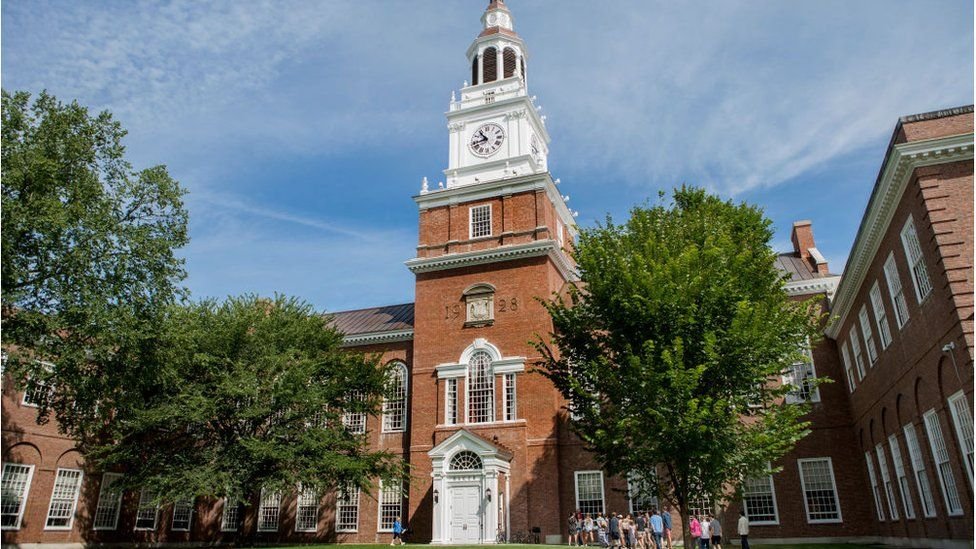This page lists upcoming and recent events hosted or co-organised by UCD Clinton Institute. Details on past events are archived on the Research pages.
Upcoming Events

Epistemic Crisis: Journalism, Academia and the Production of Knowledge
Journalism and academia have interlinked yet divergent histories as forms of knowledge production, evolving different working assumptions and practices, and different institutional worldviews. In recent years, partly due to the similar challenges they face – wide public distrust in institutions of knowledge and the erosion of public spheres – there are increasing signs of collaboration and cross-fertilisation, as well as shared anxieties about the future.
This conference, organised by UCD Clinton Institute and The Conversation, will scope emerging relations between knowledge production, technologies and public life, and look ahead with ideas on how to build trust and confidence in public knowledge.
Draft Programme
Venue Royal Irish Academy, Dawson Street
Thursday 7th March
5.30 When AI Meets Journalism
Henry Farrell (Johns Hopkins University) The Map Devours the Territory: AI Meets Journalism
Chair: Adrian Weckler (Irish Independent)
6.30 Reception
Friday 8th March
10.15 Academic Journalism
Stephen Khan (The Conversation)
Colleen Murrell (Dublin City University, Ireland)
Chair: Hasan Salim Patel (Birmingham Newman University)
11.00 Epistemic Authority
Matt Carlson (University of Minnesota) “Epistemic Crises, Epistemic Contests, and Epistemic Opportunities: Disentangling Interpretive Positions for Considering Journalism’s Future”
Aaron Hyzen (University of Antwerp, Belgium) "Out of the Crisis: Epistemic Welfare in a Digitized Media Ecology”
Harry Browne (Technological University Dublin) “Cognitive Infrastructure: Journalism, Academia and the Risks of Knowledge Management”
Chair: Idrees Ahmad (University of Essex)
12.30 Lunch
1.30 Open Source Investigative Journalism
Alexa Koenig (University California Berkeley)
Gianluca Mezzofiore (CNN)
Chair: Fergal Gallagher (RTE)
2.30 Democracy and Trust
Mark Schoofs (University of Southern California) “Flood the zone with shit”: Lessons on truth telling in the age of epistemic crisis from BuzzFeed News.
Seth C. Lewis (University of Oregon) and Jacob L. Nelson (University of Utah) “Unhealthy Skepticism: Making Sense of Growing Distrust in Journalism and Knowledge Institutions”
Terry McCarthy (American Society of Cinematographers, USA) "Artificial Intelligence: Here’s “all” you need to know"
Chair: Scott Lucas (UCD)
4.00 Tea & Coffee
4.30 Reporting the Middle East
Giles Trendle (former MD of Al Jazeera English) ‘Deadlines & Frontlines: Examining Media Narratives and the Challenges of Reporting in the Middle East’
Jairo Alfonso Lugo-Ocando (University of Sharjah) “Influencers, Journalists and Public Engagement in MENA"
Idrees Ahmad (New Lines/University of Essex), "Technology’s Equivocal Promise: On the Al Ahli Bombing and the Perils of Groupthink in Open Source Investigations”
Chair: Mary Fitzgerald (journalist/Middle East Institute)
6.00 On Political Writing
Gary Younge (The Guardian/University of Manchester) "How Racism Shaped My Critical Eye"
Chair: Liam Kennedy (UCD)
This conference marks the launch of a new MA in Journalism and International Affairs programme at University College Dublin. This programme is a collaboration between UCD Clinton Institute and CNN Academy.
There is no conference fee. To register, please contact Catherine.Carey@ucd.ie
Accommodation suggestions
There are many accommodation options available in and around Dublin. These are only a few suggestions.
Buswells Hotel, City Centre
Clayton Hotel, Ballsbridge
The Talbot Hotel, Stillorgan
Hampton by Hilton Hotel, City Centre
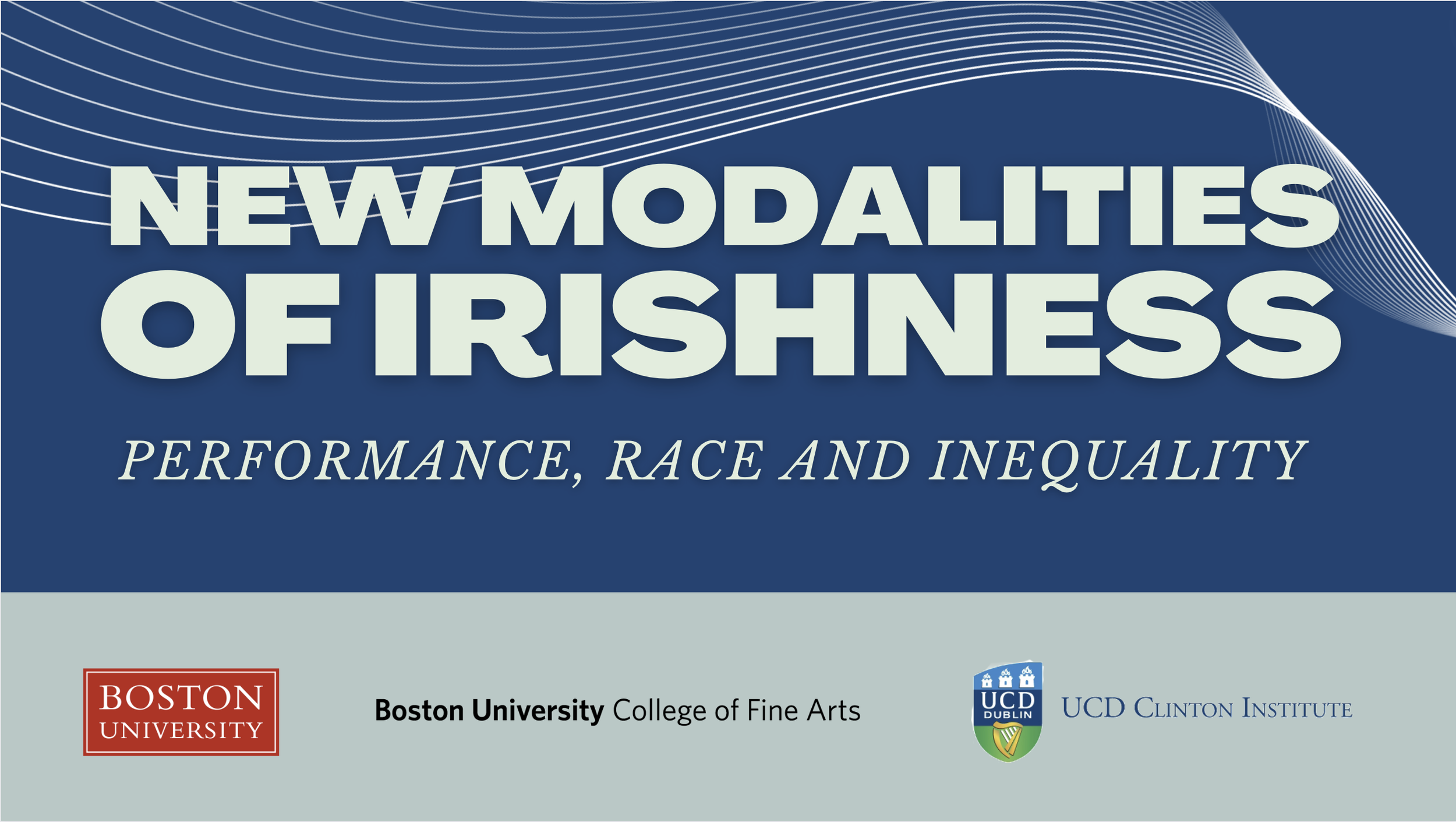
Call For Papers - New Modalities of Irishness: Performance, Race + Inequality
The Modalities of Irishness project co-hosted by University College Dublin’s Clinton Institute and Boston University’s College of Fine Arts is now accepting submissions for its second event, following the successful first symposium in Boston in June 2023. The next symposium in the series will take place at the Clinton Institute on Friday 19th April 2024.
Please send a 300-word paper or panel proposal (for a 20-30 minute presentation) and short bio paragraph by December 15.
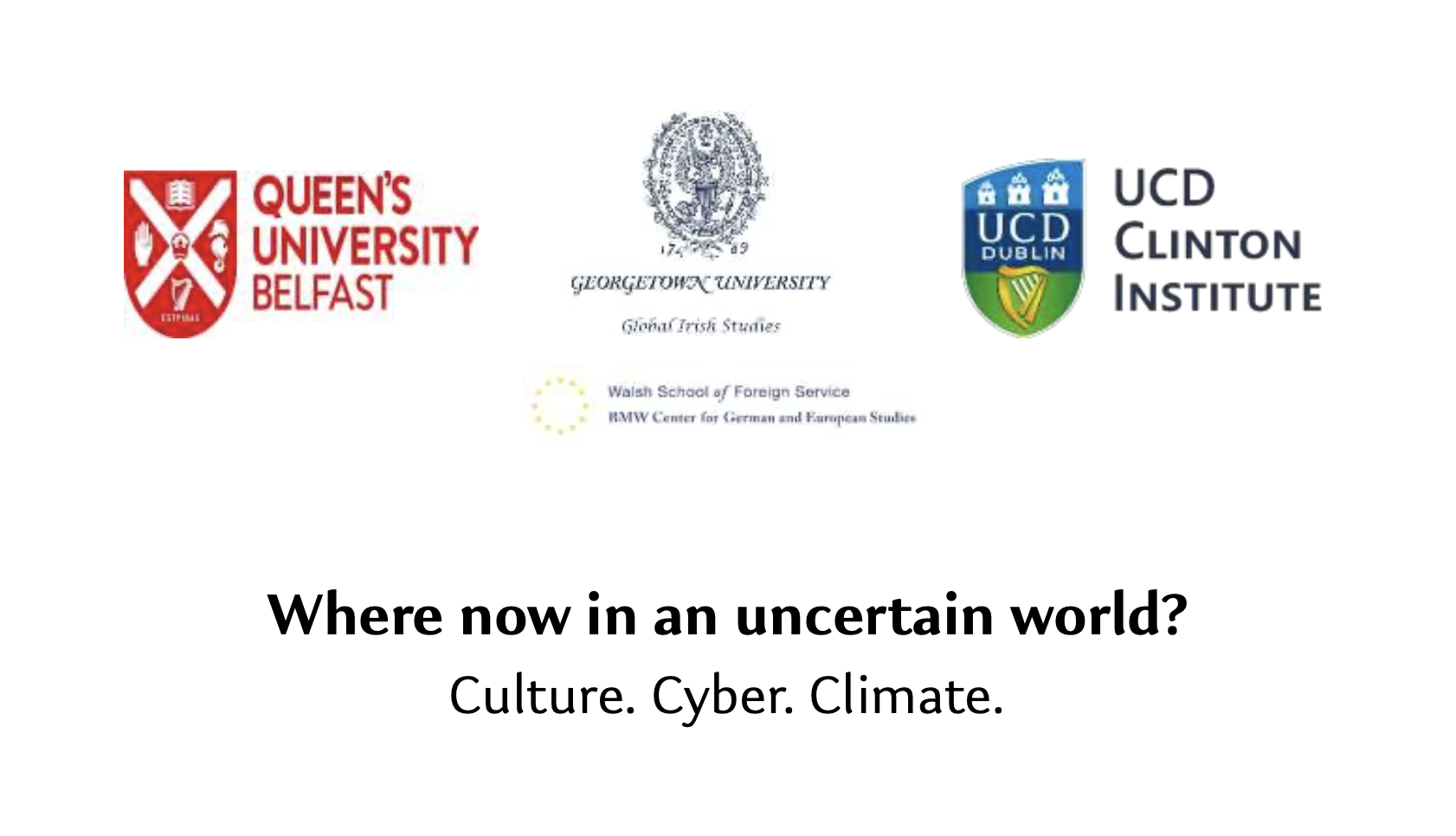
Bridging the Atlantic: Culture. Cyber. Climate
Where now in an uncertain world?
Culture. Cyber. Climate.
Bridging the Atlantic 5th Annual conference
A joint initiative between Queen’s University Belfast, Georgetown University & University College Dublin
Monday 13th November 2023 Lanyon Building, Queen’s University Belfast
11:00 Great Hall: Graduate Forum Bridging the Divides: Digitalising academic research for public use & future benefit Darragh Gannon (Georgetown) & Olwen Purdue (QUB) Chair: Katy Hayward (QUB)
12:30 Canada Room: Lunch For graduate participants & speakers/chairs
13:10 (08:1O EST) Council Chamber: Conference
13:15 (08:15 EST) Opening Welcome Ryan Feeney (Vice-President Strategic Engagement and External Affairs, QUB) & Ted Smyth (Chair, Clinton Institute for American Studies, UCD & President, Glucksman Ireland House for Irish Studies)
13:30 (08:30 EST) Panel One: Where now for Cultural Memory in a troubled world? Laia Balcells (Georgetown), Kathleen James-Chakraborty (UCD), Olwen Purdue (QUB) & Katrin Sieg (Georgetown) Chair: Cóilín Parsons (Georgetown)
14:30 (09:30 EST) Panel Two: Where now for Cyber Security in an insecure world? Máire O’Neill (QUB), Chris Painter (GFCE Foundation Board) & Kevin Powers (Boston College) Chair: Liam Kennedy (UCD Clinton Institute)
15:30 Break
16:00 (11:00 EST) Keynote: Where now for NI’s economy in a transatlantic context? Joe Kennedy III (US Special Envoy to Northern Ireland) Chair: Noyona Chundur (Consumer Council of NI)
16:30 (11:30 EST) Panel Three: Where now for Climate Action in a burning world? Nina Hamilton (North American Association for Environmental Education), Jenna Potter (Keep Northern Ireland Beautiful) & Rosalind Skillen (BirdWatch Ireland) Chair: John Barry (QUB)
17:30 (12:30 EST) Closing session: Where now for Bridging the Atlantic? US Consul General James Applegate in conversation with Jayne McCormack (BBC)
17:55 (12:55 EST) Close: Katy Hayward (QUB) 18:00 Canada Room: Reception with remarks from Irish Joint Secretary Laurence Simms (DFA) and Director of Northern Ireland Bureau in DC Andrew Elliott (tbc)
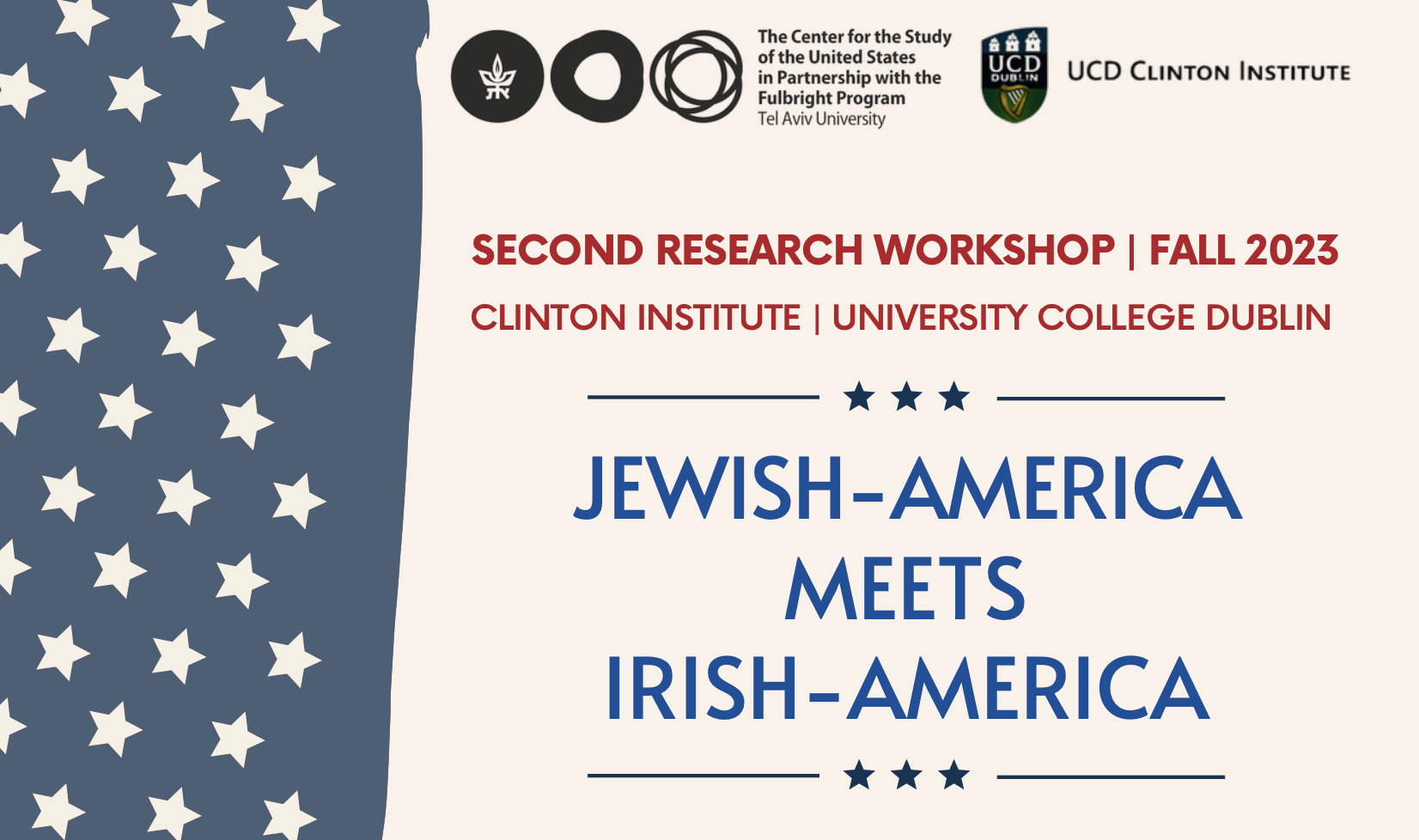
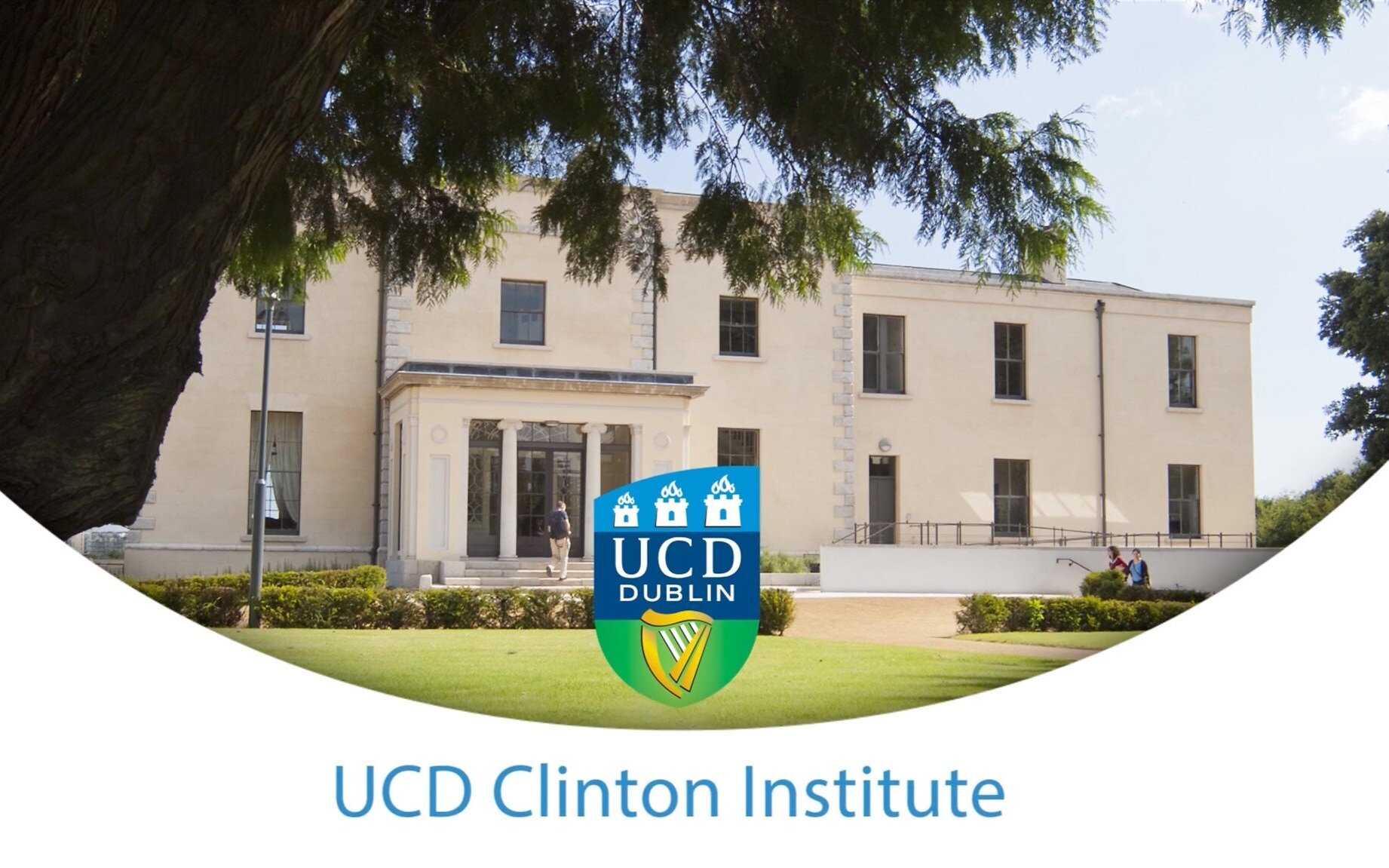
Call For Papers & Panels: Assessing the Impact of Emerging Technologies on Contemporary Society & Global Affairs
CALL FOR PAPERS & PANELS
Second Annual Conference of the BISA International Studies and Emerging Technologies Working Group (ISET)
Assessing the Impact of Emerging Technologies on Contemporary Society and Global Affairs
September 1st, 2023
Clinton Institute for American Studies, University College Dublin, Ireland
Contact: eugenio.lilli@ucd.ie
Emerging technologies, such as cyber and artificial intelligence, have undeniably become a key factor in contemporary society and global affairs. Individuals, communities, groups, states, and international actors alike all face new challenges and opportunities deriving from these technological developments. So far, the study of these topics has been overwhelmingly the remit of the Computer Science and Engineering communities. Research in the Social Sciences and Arts and Humanities (SSAH) has only recently started to engage more systematically in this area. The goal of this conference is to promote SSAH research on the impact of emerging technologies, like cyber and AI, on contemporary society and global affairs. In particular, this conference will offer a unique opportunity to SSAH researchers to come together, share their work and experiences, and develop a sense of community. Accordingly, the program will include a plenary session where opportunities for joint publications and funding applications will be discussed.
The conference remit is intentionally broad. We invite proposals of individual papers and panels from a diverse range of scholarly perspectives investigating the multiple ways in which emerging technologies are having an impact on contemporary society and global affairs including, but not limited to, techs' impact on:
- war and warfare
- diplomacy
- governance
- democracy
- foreign policy
- international law
- ethics
- privacy
———————————————————————————————————————————
Individual paper proposals should be 300 words long and include a title.
Panel proposals should be 300 words long, include a title, and have at least three participants.
Paper and panel proposals should be submitted by March 9th, 2023 to the conference organizer, Dr Eugenio Lilli (eugenio.lilli@ucd.ie)
Cost and Funding
BISA members fee: FREE
Standard fee: €25
We have a number of travel/accommodation bursaries available for strong proposals from Early Career Researchers. ECRs considered for funding will be determined by being either a doctoral candidate or having a fixed term teaching post, postdoc etc. To provide confirmation of your ECR-status please submit a CV with the necessary details when applying. Depending on availability, participants with a full-time permanent position will also be considered.
Participants who will become members of BISA, and of the ISET working group, before registering to the conference will be able to avail of the free-registration option.
Timeline
March 9th, 2023: submission deadline for both paper and panel proposals
April 27th, 2023: provisional programme published and notification emails sent out
April 27th, 2023: registration and bursary applications open
May 12th, 2023: registration and bursary applications close
May 22nd, 2023: final program published
September 7th, 2023: conference day
Funders
The conference is jointly funded by the University College Dublin and by the British International Studies Association (BISA).
ISET (International Studies and Emerging Technologies) is a working group within BISA. ISET aims at being an inclusive and accessible forum for researchers and students interested in the various ways in which emerging technologies, like cyber and artificial intelligence, are affecting contemporary societies and global affairs.

Call For Papers - New Modalities of Irishness: Performance, Race and Inequality
CALL FOR PAPERS
New Modalities of Irishness: Performance, Race and Inequality
June 24th 2023
Boston University, Boston, Massachusetts
Contact: Liam Kennedy (liam.kennedy@ucd.ie), Professor Diane Negra (diane.negra@ucd.ie) and Professor Harvey Young (cfadean@bu.edu)
University College Dublin Clinton Institute and Boston University College of Fine Arts are pleased to announce a symposia series entitled “New Modalities of Irishness.” We invite proposals for our first symposium to be held on 24 June 2023 at Boston University. A second symposium is planned for October 2023 at University College Dublin.
In an era of heightened self-consciousness in regard to whiteness, Irishness toggles between racial positions and performs complex mediations. Irishness has long held a particular and privileged position among European ethnicities in the American worldview. In the current era this category may present itself as newly in flux, increasingly divorced from seemingly stable definitions of “heritage,” and available to support new assertions of identity along a racial spectrum.
Now associated with forward social momentum in many respects, Ireland represents a new sort of contrast to a United States that appears to be losing its traditional sense of purchase in regard to a positive futurity. Notably, the capacity for Irishness to function as a place marker for ethnic pride and white working-class memory has decisively shifted amidst a new global landscape of intense inequality. Analysis of Irishness would benefit from deeper consideration of Irishness’ place in contemporary US class imaginaries and particularly its emergence as a safe white identity marker for elites. Meanwhile Ireland itself is increasingly reckoning with a set of more complex social features stimulated by globalism.
This symposium will consider distinctive modalities and mediations of Irishness, particularly as these are inflected with racial identifications and displacements and encoded across media, including theatre/performance, film/television, and myriad forms of communication. Today, Irishness flows through key digital channels in forms such as emigration blogs, Instagram posts and TikTok dance videos. It is timely to consider the characteristics and effects of such manifestations of Irishness and the research protocols suited to studying them.
Please send a 200-word paper or panel proposal (for a 20-30 minute presentation) by 21 April to Professor Liam Kennedy (liam.kennedy@ucd.ie), Professor Diane Negra (diane.negra@ucd.ie) and Professor Harvey Young (cfadean@bu.edu).
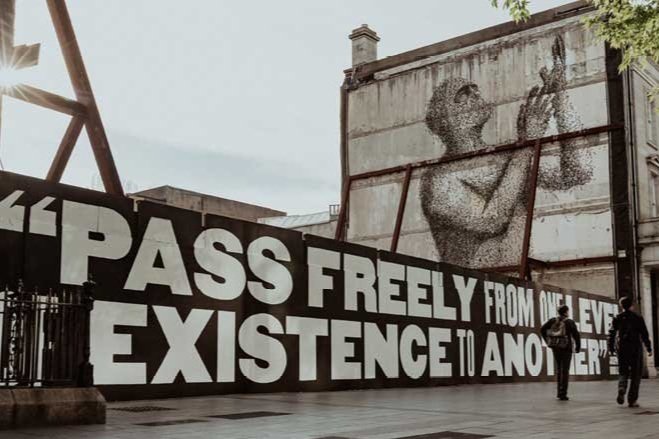
Conference focusing on the specificities of pandemic experience in Ireland.
WHEN
Wednesday, June 14, 2023, 09:00 - 17:30
WHERE
The Royal Irish Academy, 19 Dawson Street, Dublin 2
TICKETS
Free event but places are limited and booking is essential
Conference focusing on the specificities of pandemic experience in Ireland.
A Royal Irish Academy Working Group on Culture and Heritage one-day in-person event on Ireland and the Covid-19 pandemic. The discussions across the day will broadly focus on culture and society rather than policy debates or governmental matters. As an exercise in national self-understanding this event will be highly interdisciplinary with a focus on the specificities of pandemic experience in Ireland. Topics to be taken up range from:
public health concerns
remembrance practices to media
journalism
the impacts of the pandemic on everyday life.
Across the day there will be five panels comprised of three speakers each with a chair drawn from the membership of the Working Group. Each speaker will be allotted 20 minutes, followed by 10 minutes for q + a.
Full programme and speaker bios available here: https://www.ria.ie/ireland-and-covid-19-pandemic

Bridging the Atlantic: Ireland and the US
The Bridging the Atlantic symposium takes soundings of the Ireland-US relationship in the context of broader transatlantic relations. This the fourth annual symposium, a collaborative enterprise involving colleagues from Georgetown University in Washington, Queens University Belfast and University College Dublin, and with the support of the Embassy of Ireland in Washington.

Why The Wire Still Matters, Webinar
The Wire is 20 years old – it launched on HBO on 2nd June 2002 and ended after five seasons in 2008. It is widely revered - in 2021, over 200 international critics voted it in first place in BBC Culture’s poll “The 100 greatest tv series of the 21st century”.
The show was not always so well received. Early viewing figures were low and it was almost cancelled on several occasions. It never won an Emmy. How did it become a landmark in serial television? How did it become a cultural phenomenon, not only in the US but globally? What is its legacy in the age of Black Lives Matter? To explore why The Wire still matters, we are hosting a conversation between:
Sherry Linkon - Professor of English at Georgetown University, author of The Half-Life of Deindustrialisation
Ronda Racha Penrice – journalist/cultural critic, editor of Cracking The Wire During Black Lives Matter.
Carlo Rotella - Professor of English at Boston College, author of The World Is Always Coming to an End: Pulling Together and Apart in a Chicago Neighbourhood.
Stephen Shapiro - Professor of English at University of Warwick, co-editor of The Wire: Race, Class and Genre
Liam Kennedy - Professor of American Studies at University College Dublin, co-editor of The Wire: Race, Class and Genre
To register please click on the link below.
You are invited to join this Zoom webinar.
When: Jun 2, 2022 07:00 PM Dublin
Topic: The Wire 20th Anniversary Webinar
Register in advance for this webinar:
https://ucd-ie.zoom.us/webinar/register/WN_4DH04CLORP2myungggbjjw
Assessing the Impact of Emerging Technologies on Contemporary Society and Global Affairs
2022 First Annual Conference of the BISA International Studies and Emerging Technologies Working Group (ISET)
Assessing the Impact of Emerging Technologies on Contemporary Society and Global Affairs
May 20-21, 2022
Dartmouth Summer Institute Scholarship 2022
The Institute is offering a scholarship for one PhD/early career scholar to attend the Future of American Studies Summer Institute in Dartmouth College 20–26th June 2022
Application Procedure:
Applicants must be a registered member of the IAAS (Irish Association for American Studies). For details on membership, visit here.
Applicants should submit:
A summary of their current research/thesis, including comment on the work they hope to advance through participation at the Summer Institute (max 500 words)
A writing sample (max 5,000 words)
CV
The Scholarship will cover the cost of a return flight to Boston, internal travel from the airport to Dartmouth College and the registration fee for the week (which includes accommodation).
Applications should be sent to Catherine Carey (catherine.carey@ucd.ie) and should arrive no later than the 1st April 2022
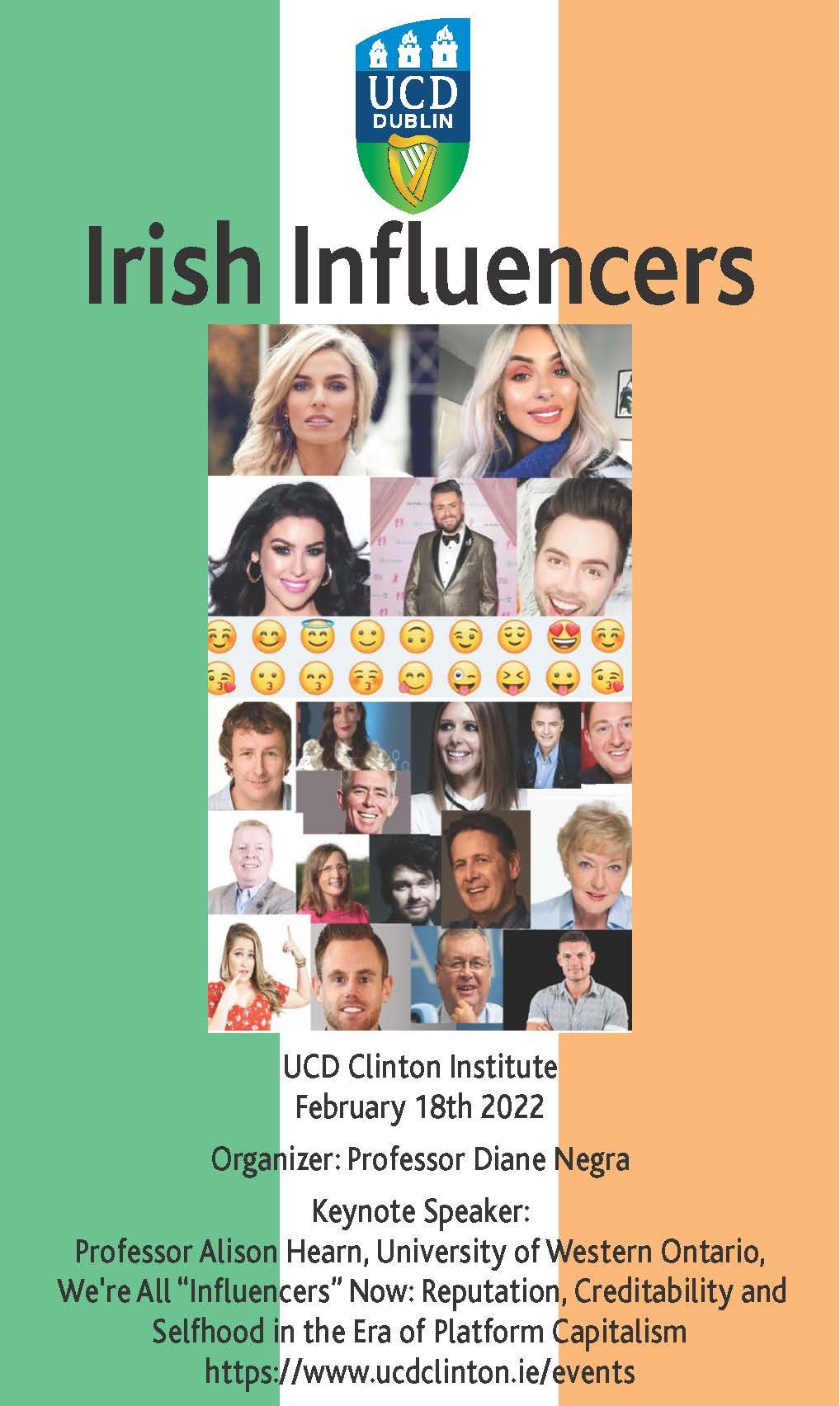
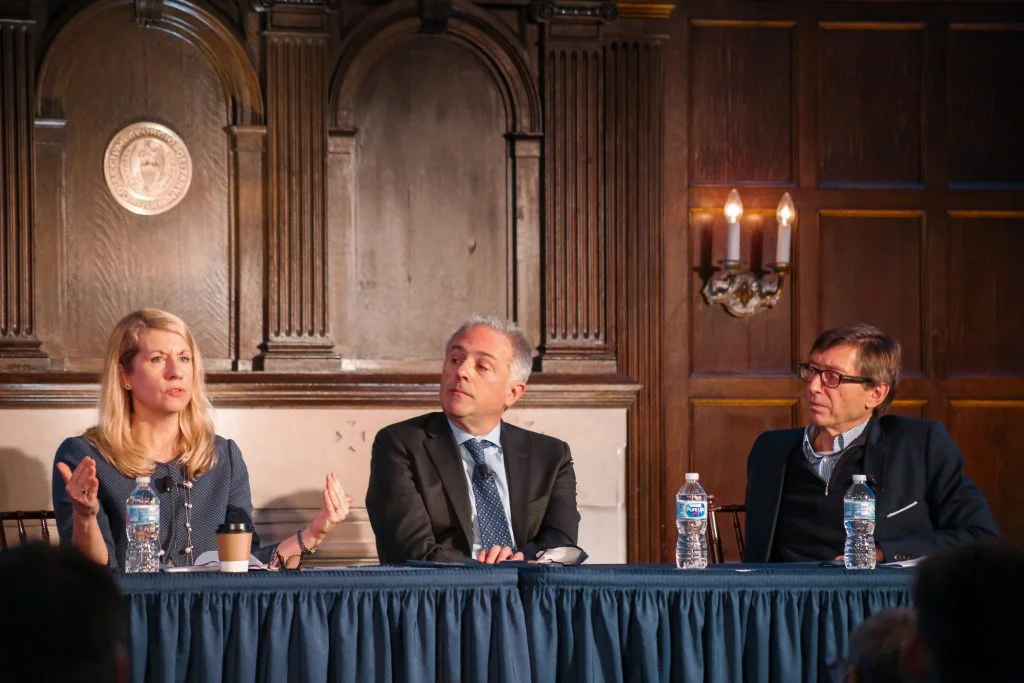
Bridging the Atlantic: Ireland and the US
Bridging the Atlantic III- Ireland and the US
The third annual Bridging the Atlantic conference sought to spotlight issues of mutual concern in the USA, Ireland, and the EU—among them the US-EU relationship, transatlantic trade, and the current challenges of peace-building in Northern Ireland after Brexit.
Event Schedule
8:30am: Registration and Tea/Coffee.
9:00am: Opening remarks from Dean Joel Hellman, Georgetown University School of Foreign Service; Prof. Katrin Sieg, Director of the BMW Center for German and European Studies; and Prof. Richard English, Professor of Politics at Queen’s University Belfast and Director of the Senator George J. Mitchell Institute for Global Peace, Security and Justice
9:10am: Panel 1–US-Europe Relations Under New Transatlantic Leadership
This panel will discuss the resetting of transatlantic relations, with new leadership in Germany and the US, and in the unsettling context of shifting global power dynamics and climate emergency. It will consider the role of Ireland in the emergent realignment of EU-US relations.
Amb. Peter Wittig, Former Ambassador of Germany to the UK and the US, current Senior Fellow in the School of Foreign Service, BMW Center for German and European Studies, Georgetown University
Dr. Heather Conley, President Designate of the German Marshall Fund
Ed Luce, Associate Editor, Financial Times
Moderated by Dr. Thomas Wright, Director of the Center on the United States and Europe, The Brookings Institution.
10:00am: Break
10:10am: Panel 2–US-Ireland Trade and Investment: A Two-Way Street
Over the last year the US and the EU have made commitments to work together on economic recovery through sustainable and digital transitions and tackling global trade challenges. This panel will consider the mutually beneficial impact of US-Ireland trade and investment and how Ireland can help strengthen the post-Brexit EU-US economic relationship.
Amb. Daniel Mulhall, Ambassador of Ireland to the United States
Marjorie Chorlins, Senior Vice President for European Affairs, US Chamber of Commerce
Dr. Siobhán Roche, Director of Science for the Economy, Science Foundation Ireland
Dr. Jayne Brady, Head of the Northern Ireland Civil Service
Moderated by Niamh King, Deputy Director of the Aspen Strategy Group and the Aspen Security Forum, Aspen Institute
11:00am: Break
11:10am: Panel 3–Protecting Peace in Ireland, Including the Role of the United States
Panelists from Northern Ireland and the US will discuss the current state of the Northern Ireland peace process, with a particular focus on Brexit, the border, the future of power sharing, and the role of the United States.
Rep. Brendan Boyle, D-Pennsylvania
Rep. Bruce Morrison, Co-Chair Ad Hoc Committee to Protect the Good Friday Agreement
Prof. Katy Hayward, Professor of Political Sociology, Queen’s University Belfast.
Brian Rowan, Journalist and Author
Moderator by Ted Smyth, Clinton Institute, University College Dublin
12:00 noon: Closing remarks
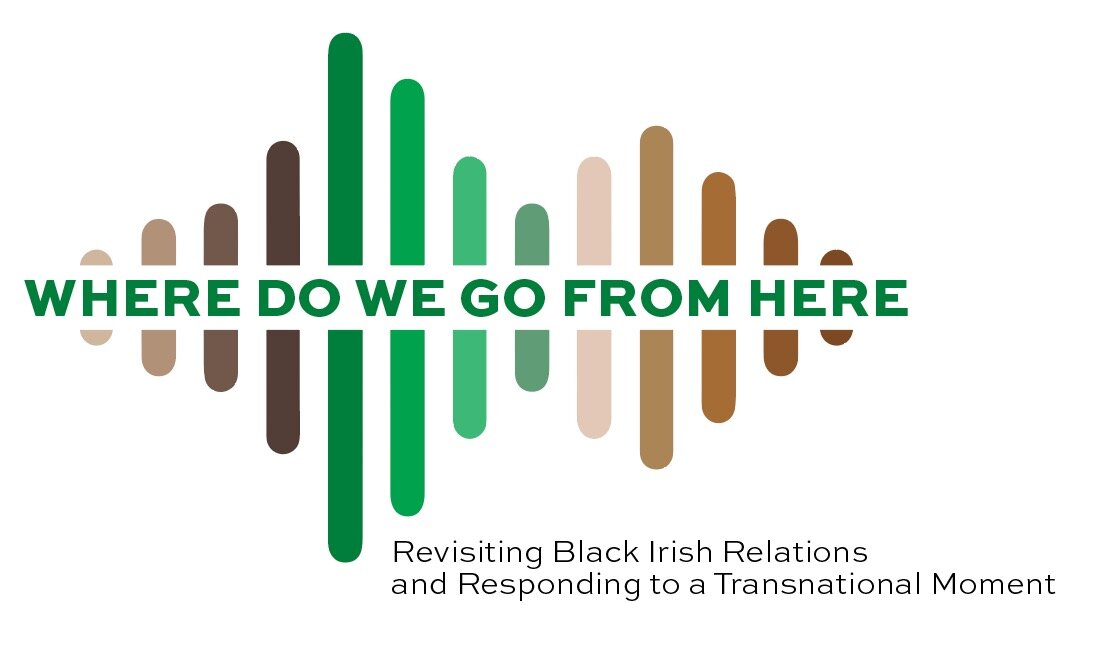
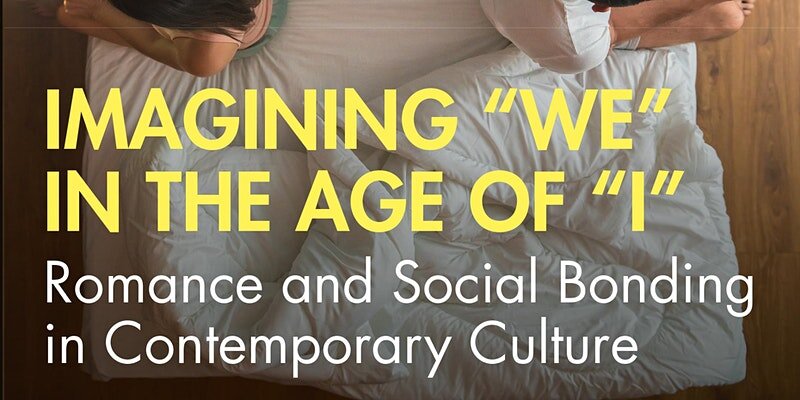
Trump's America
Trump’s America
BAAS Conference 2021 - Roundtable Discussion
The Trump presidency delivered a seismic shock to the American political system and more broadly to political culture and the public sphere in the US - and beyond, given the influence of the US across the world. This roundtable discussion considers the ongoing shockwaves and the underlying paradigm shift signified by the advent of Trump. A core point of discussion is the challenge to understand the nature of this disruption, to identify and critically illuminate some of its key cultural and political facets. Another is the ongoing influence of Trump and Trumpism beyond the period of his presidency. Almost one hundred days into a Biden presidency this discussion will take stock of defining cultural and political struggles between the forces of an insurgent populist nationalism and those of a residual liberal democracy.
“Trump’s America” is another name for the ongoing crisis of a traumatised liberal order in the US and this roundtable will consider some of the challenges to constructing new forms of political conversation in the wake of Trump’s presidency. Reflecting on moral and intellectual challenges posed by Trump’s presidency, Russian-American writer Masha Gessen writes:
There will come a time after Trump, and we need to consider how we will enter it. What are we going to take with us into that time—what kind of politics, language, and culture? How will we recover from years of policy (if you can call it that) being made by tweet? How will we reclaim simple and essential words? Most important, how will we restart a political conversation?
These questions guide much of our critical reflections.
The participants in the roundtable are all authors of chapters in Trump’s America: Political Culture and National Identity (Edinburgh University Press, 2019), edited by Liam Kennedy.
Frank Kelleter is Chair of the Department of Culture and Einstein Professor of North American Cultural History at John F. Kennedy Institute, Freie Universität Berlin. He is the director of the Popular Seriality Research Unit (PSRU), a transdisciplinary group consisting of 13 projects, funded by the German Research Association (2010-2016). His monographs include: David Bowie (2016), Serial Agencies: “The Wire” and Its Readers (2014). His edited volumes include Media of Serial Narrative (Ohio State UP, 2017), Populäre Serialität (2012), and American Studies as Media Studies (2011).
Liam Kennedy is Professor of American Studies and Director of the Clinton Institute for American Studies at University College Dublin in Ireland. He has published widely on American culture, politics and foreign policy. Recent books include Afterimages: Photography and US Foreign Policy (2016), Neoliberalism and American Literature (2018, with Stephen Shapiro) and Trump’s America (2019). He is co-founder of the media platform America Unfiltered.
Diane Negra is Professor of Film Studies and Screen Culture at University College Dublin. A member of the Royal Irish Academy, she is the author, editor or co-editor of ten books, including The Aesthetics and Affects of Cuteness (2016), Extreme Weather and Global Media (2015), Gendering the Recession (2014), Old and New Media after Katrina (2010), What a Girl Wants (2008), Interrogating Postfeminism: Gender and Politics of Popular Culture (2007), and The Irish in US: Irishness, Performativity and Popular Culture (2006). She currently serves as Co-Editor-in- Chief of Television and New Media.
Donald E. Pease Jr. is the Ted and Helen Geisel Third Century Professor in the Humanities and chair of the Masters of Arts in Liberal Studies Program at Dartmouth College. He is the founder and director of the Futures of American Studies Institute at Dartmouth and editor of Duke University Press book series The New Americanists. He is author of Visionary Compacts: American Renaissance Writing in Cultural Context (1987), The New American Exceptionalism (2009) and Theodor Seuss Geisel (2010), and editor of several collections, among them National Identities and Postnational Narratives (1994), Cultures of U.S. Imperialism (1992), and New Americanists: Revisionist Interventions into the Canon (1994).
Stephen Shapiro is Professor of English at Warwick University. He is author of Pentecostal Modernisms: Lovecraft, Los Angeles and World-Systems Culture (2017) and The Culture and Commerce of the Early American Novel: Reading the Atlantic World-System (2009) and co-author of Combined and Uneven Development: Towards a New Theory of World Literature (2015). His edited books include The Wire: Race, Class, and Genre (2012), How to Read Foucault’s Discipline and Punish (2000), How to Read Marx’s Capital (2008), and Revising Charles Brockden: Culture, Politics and Sexuality in the Early Republic (2004)
Penny von Eschen is William R. Kennan Jr. Professor of American Studies and Professor of History at the University of Virginia. She is the author of Satchmo Blows Up the World: Jazz Ambassadors Play the Cold War (2004) and Race against Empire: Black Americans and Anticolonialism, 1937-1957 (1997) and editor of Contested Democracy: Freedom, Race, and Power in American History (2007) and American Studies: An Anthology (2009).
Liam Kennedy will act as moderator of the roundtable discussion.
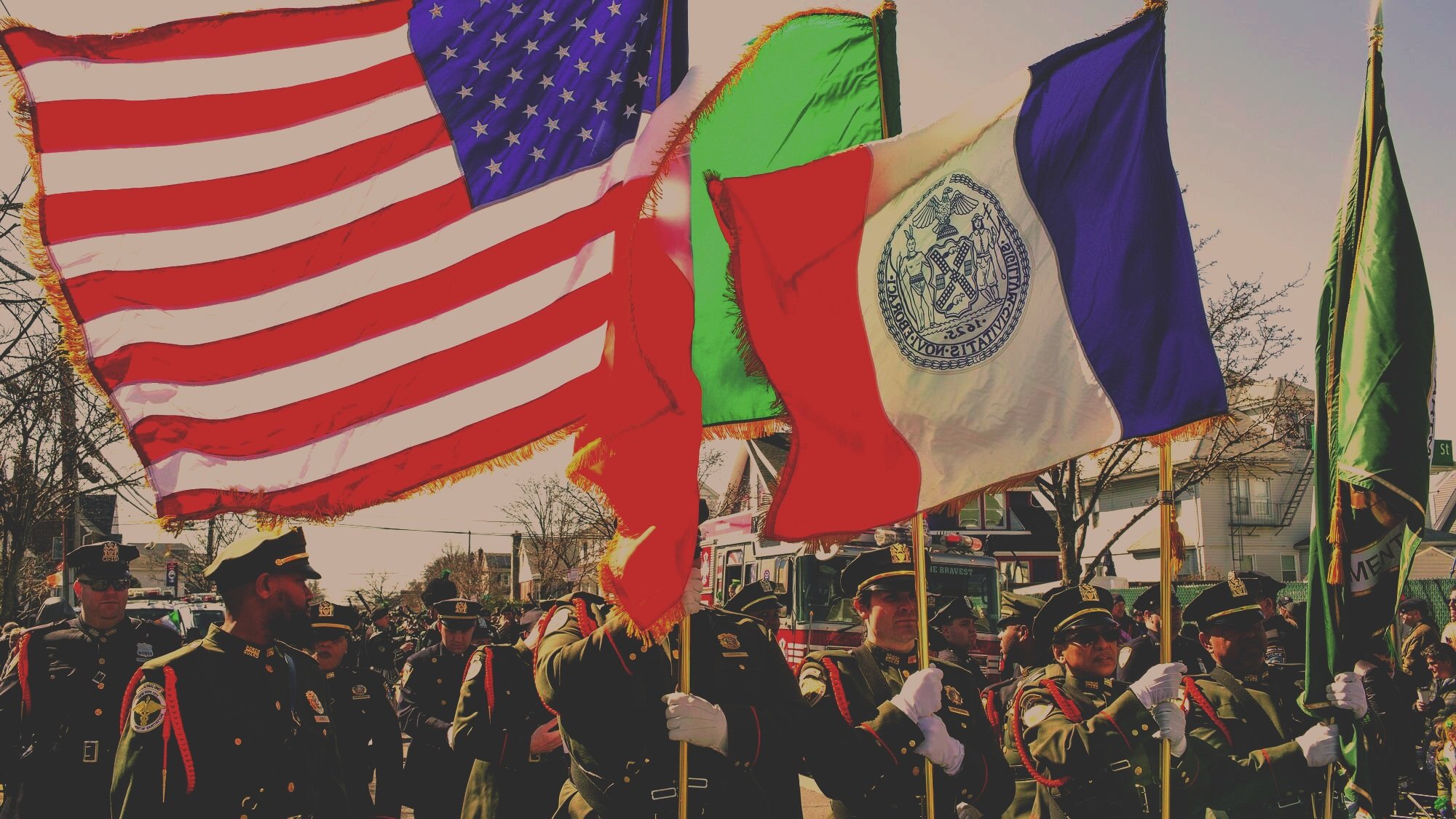
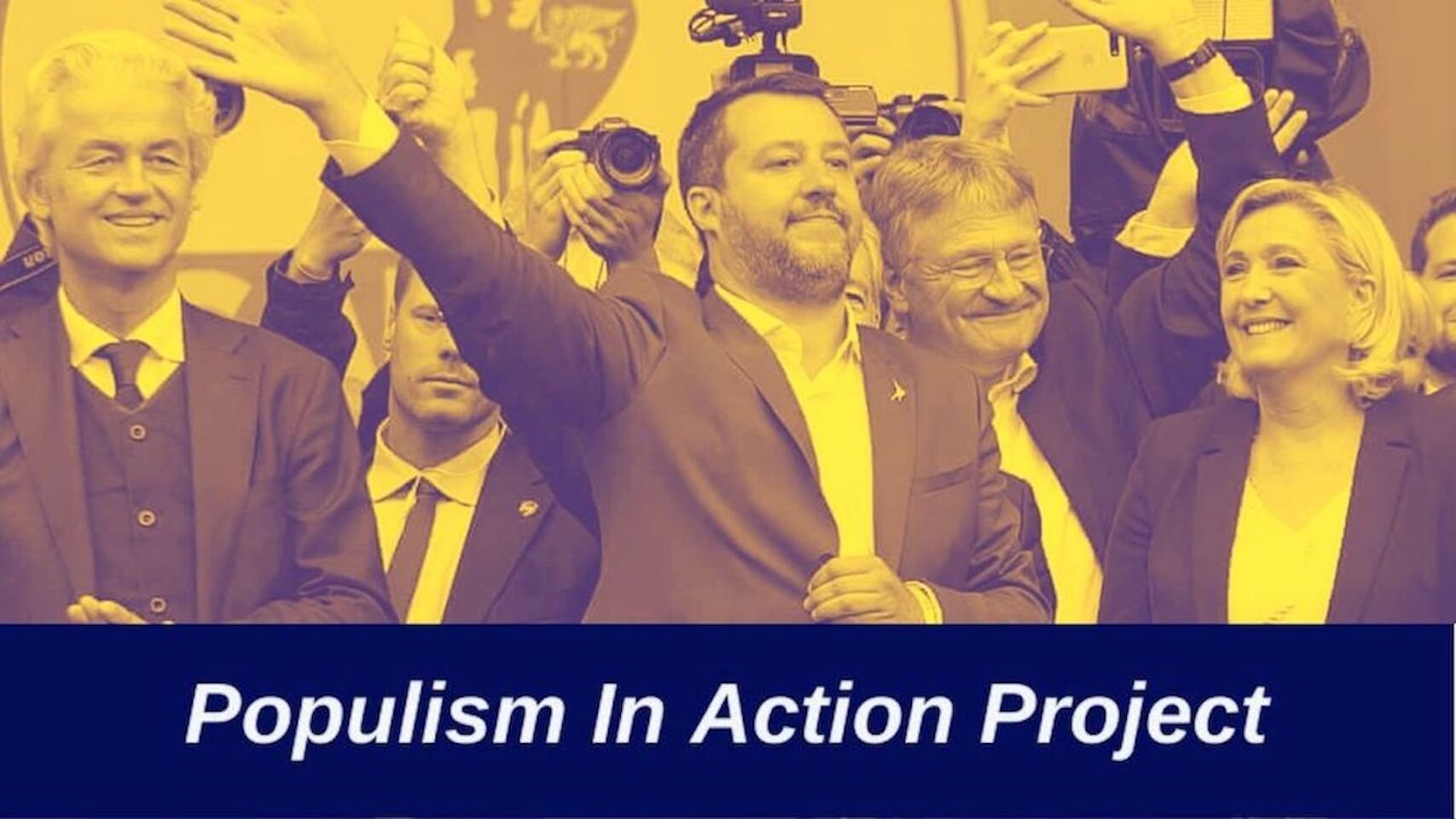
Webinar: Populism Around The World: Beyond The “Charismatic Leader”
How do we understand the politics and activist membership of populist parties in Europe?
This discussion seeks to bring together the media, NGOs, policymakers, researchers and academics. It is open to the public.
In the first part, the event will cover the Italian League, the Flemish Interest, the Finns Party, and the Swiss People’s Party, using extensive fieldwork among their representatives and members. How and why have these parties committed themselves to maintaining costly and complex mass organisations? What is the role of party leaders within them? In the second part, we will broaden the discussion to include the case of Ireland.
Speakers: Daniele Albertazzi (University of Birmingham) and Stijn van Kessel (Queen Mary University of London) will present the preliminary findings of the Populism in Action Project, which focuses on grassroots activism and party leaders within the European populist radical right. Julien Mercille (University College Dublin) will talk about populism in Ireland.
Chair: Scott Lucas (University of Birmingham)
A Q&A session will follow.

Irish Influencers
Keynote Speaker: Professor Alison Hearn, University of Western Ontario, "We're All 'Influencers' Now: Reputation, Creditability and Selfhood in the Post-Neoliberal Era"
Digital reputation-building has become associated with the rise of the “influencer” whose ability to leverage their own perceived “credibility” and “authenticity” for the benefit of other brands is a notable element of early twenty-first century marketing techniques and their diffusion into everyday life.
This event seeks to consider these developments in the context of Irish nation branding and perceptions of a shifting sphere of Irishness by showcasing a range of academic perspectives on new circulatory channels for Irishness in the global economy. Specifically, it tracks the emergence of a celebrity-driven, post-recession enterprise culture and hones in on a crop of new Irish celebrities who exert considerable influence over the meanings of Irish nationality and ethnicity, often highlighting a perceived capacity to retain an innate Irishness alongside transnational intelligibility and commercial appeal.





